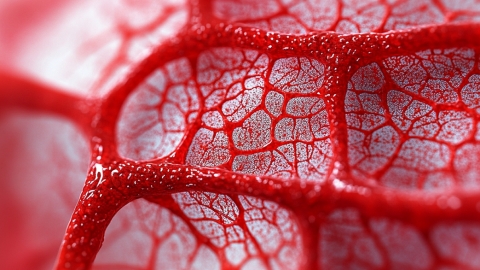What to do about severe blood vessel blockage
In general, severe vascular occlusion may be caused by long-term high-fat diet, lack of exercise, hypertension, hyperlipidemia, coronary atherosclerosis, and other factors. It is recommended to seek timely medical attention, identify the underlying cause, and improve the condition under a doctor's guidance through general treatment, medication, surgical treatment, etc. A detailed analysis is as follows:

1. Long-term high-fat diet: Frequent consumption of fried foods, fatty meats, and other high-fat foods leads to excess fat deposition on the blood vessel walls, gradually forming plaques that cause blockages. Adjust your diet by reducing high-fat and high-cholesterol foods, consuming more low-fat foods rich in dietary fiber such as celery, oats, and fish, maintaining regular meals, and avoiding overeating.
2. Lack of exercise: Long-term physical inactivity slows metabolism, promotes fat accumulation, increases blood viscosity, and raises the risk of vascular blockage. Engage in physical activity 3-5 times per week for at least 30 minutes each time, such as brisk walking, jogging, or swimming, to promote blood circulation and fat metabolism, thereby reducing the likelihood of blockage.
3. Hypertension: Prolonged high blood pressure damages the vascular endothelium, making it easier for lipids to deposit and form plaques, leading to vascular occlusion. Patients should follow medical advice to use medications such as nifedipine controlled-release tablets, irbesartan tablets, or valsartan capsules to control blood pressure, regularly monitor blood pressure, and maintain stable blood pressure within the normal range.
4. Hyperlipidemia: Excessively high levels of cholesterol and triglycerides in the blood easily deposit on vessel walls, forming atherosclerotic plaques that lead to vascular narrowing and occlusion. Patients should follow medical advice to use medications such as atorvastatin calcium tablets, rosuvastatin calcium tablets, or simvastatin tablets to regulate blood lipid levels, reduce lipid deposition, and slow the progression of occlusion.
5. Coronary artery atherosclerosis: Lipid deposition on the coronary artery walls forms plaques, and as the plaques grow larger, they cause significant vascular occlusion affecting blood supply to the heart. Mild symptoms can be controlled with medication, while severe cases may require percutaneous coronary intervention, during which a stent is implanted to expand the narrowed vessel and restore blood supply to the heart.
In daily life, avoid smoking and limit alcohol consumption, avoid staying up late, maintain emotional stability, and reduce the burden on blood vessels. Regularly undergo vascular-related examinations, such as blood lipid and blood pressure tests, and vascular ultrasound examinations, to detect abnormalities early and intervene promptly, thus maintaining vascular health.






